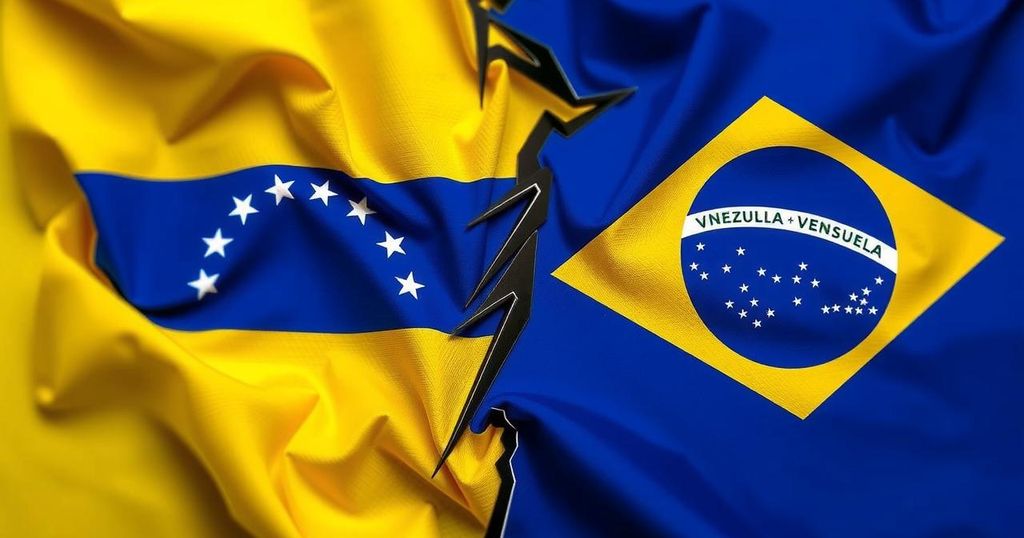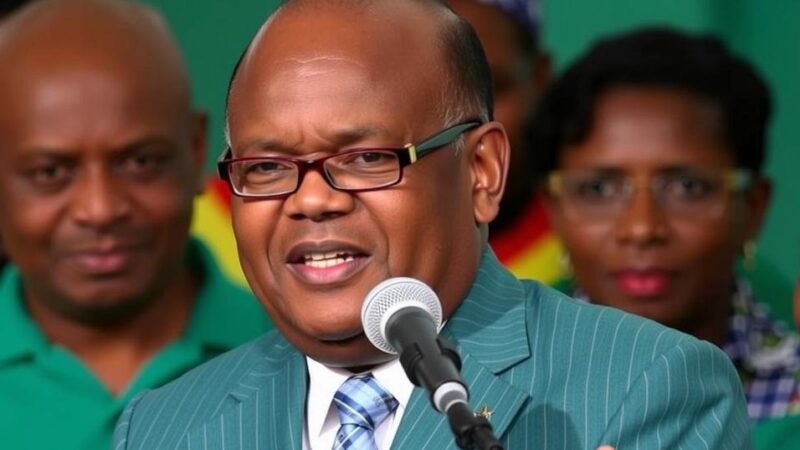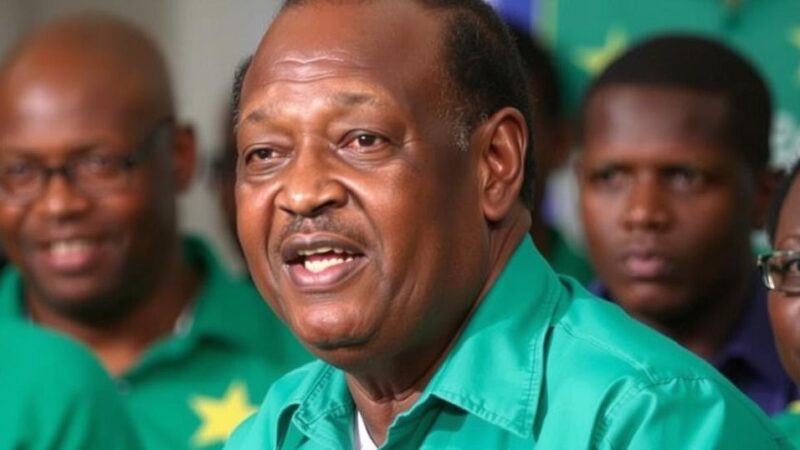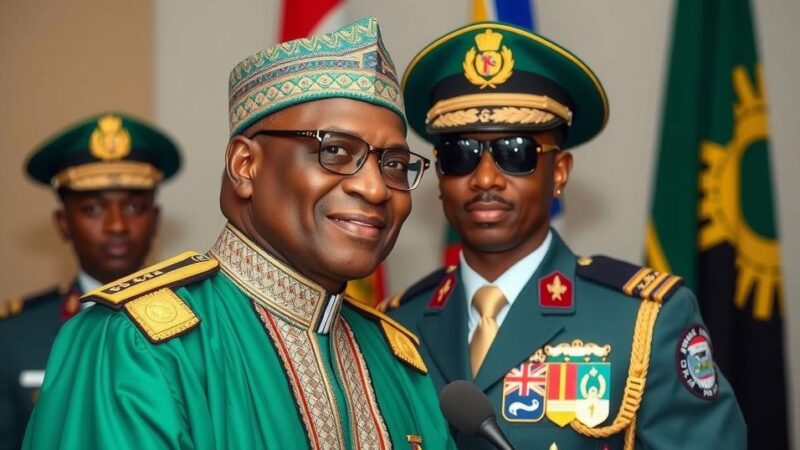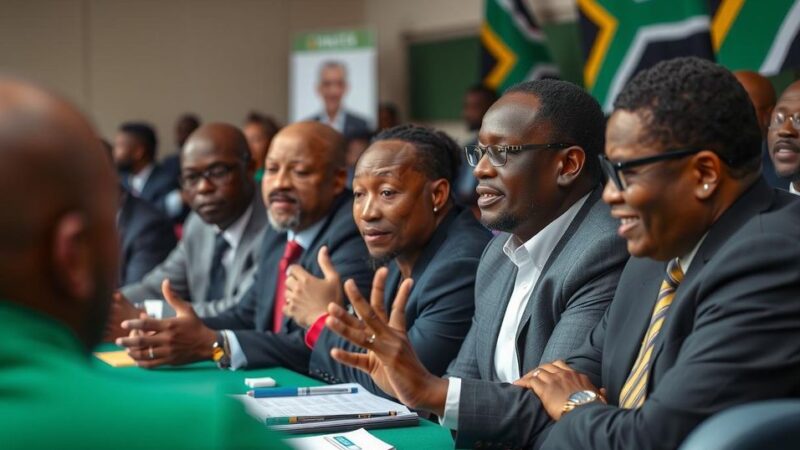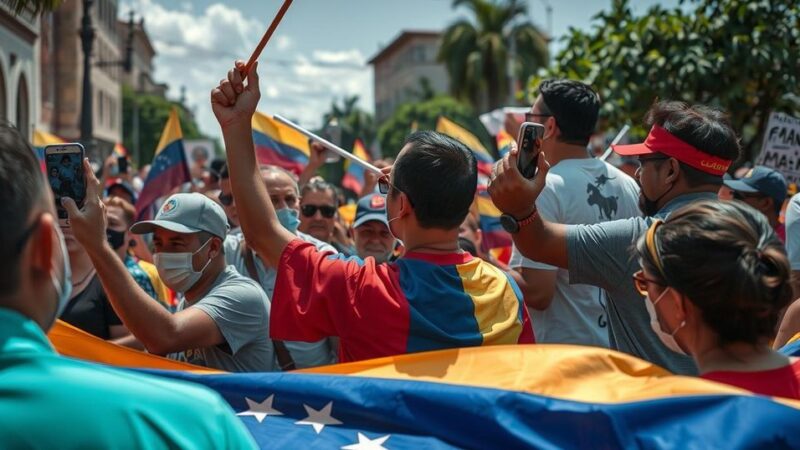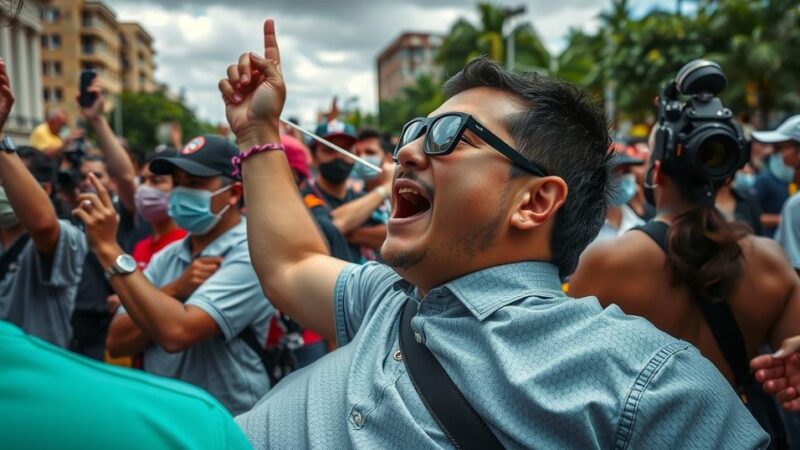Venezuela’s diplomatic relations with Brazil are facing a crisis after President Nicolás Maduro’s unsuccessful bid to join the BRICS bloc, which Brazil vetoed due to concerns over Venezuela’s legitimacy post-July elections. Venezuelan officials accused Brazil of betraying them, while Brazil maintains that any prospective BRICS members must uphold significant regional influence. The situation accentuates growing tensions between the two nations in the context of South American politics.
Relations between Venezuela and Brazil have sharply deteriorated following Venezuelan President Nicolás Maduro’s unsuccessful efforts to join the BRICS collective of emerging economies. Recently, a prominent ally of Maduro aggressively criticized a senior aide to Brazilian President Luiz Inácio Lula da Silva, accusing him of acting in the interests of the United States and declaring that he would be considered persona non grata by the Venezuelan National Assembly. In response, the Venezuelan foreign ministry announced the recall of its ambassador from Brasília and summoned Brazil’s chargé d’affaires for a formal reprimand in Caracas, as President Lula’s ambassador is currently on leave. President Lula himself did not attend the recent BRICS summit in Kazan, Russia, due to a head injury and has refrained from publicly addressing the ongoing tensions. Celso Amorim, Lula’s chief foreign policy adviser, informed lawmakers that Venezuela’s exclusion from the BRICS expansion was due to apprehensions regarding its standing in the region following the controversial presidential election held in July. “You behaved in a malicious manner, more like an interlocutor of the US government than in the role supposedly assigned by President Lula,” remarked Jorge Rodriguez, the President of Venezuela’s National Assembly, addressing Amorim in the wake of the remarks made. Amorim further elaborated that Brazil believes that any new addition to the BRICS group should wield sufficient international influence and adequately represent their region, which they contend Venezuela does not. Maduro, who asserts he secured victory in the July 28 election without providing substantiated voting records, anticipated support during the Russia summit alongside other Latin American countries such as Cuba and Bolivia. However, upon being met with rejection, Maduro accused Brazil of vetoing Venezuela’s bid, despite claiming the backing of other BRICS members. Following these developments, Venezuelan officials amplified their criticism towards key Brazilian politicians, labeling the rejection as a “stab in the back.” President Maduro avowed on his television program, “No one shuts Venezuela up or vetoes it,” although he refrained from directly criticizing President Lula. Amorim dismissed Venezuela’s reaction to the BRICS decision as having been “totally disproportionate” and chose not to provide commentary on the latest events. In previous attempts to mend relations, President Lula and Colombian President Gustavo Petro sought to mediate discussions with Maduro after the contentious elections, although this endeavor proved unsuccessful. Contrastingly, Lula’s approach has been more critical of Maduro’s repression of dissent compared to that of President Petro. The Venezuelan electoral authority declared Maduro’s victory in his third term as legitimate, a conclusion which was subsequently upheld by the Supreme Court. However, opposition sources dispute this outcome, presenting evidence that shows their candidate secured a significant share of the vote, leading to fears for the safety of opposition leaders. The rapidly escalating conflict denotes a precarious geopolitical environment in South America, fraught with burgeoning tensions that could have wider implications for regional diplomacy and stability.
This article discusses the intensifying diplomatic tensions between Venezuela and Brazil, particularly in light of Venezuela’s failed attempt to join the BRICS bloc. The political landscape in Venezuela has been highly contentious, especially following the disputed presidential election in July, which has led to fractious international relations. Brazil’s government, under President Lula, has taken a critical stance towards Maduro’s administration and its legitimacy, further aggravating the situation between the two nations. The article reflects on the comments made by both Venezuelan officials and Brazilian advisers regarding the current state of affairs and outlines the implications of these disputes within the broader context of Latin American political dynamics.
In summary, the relations between Venezuela and Brazil are experiencing notable strains as a result of Venezuela’s exclusion from the BRICS expansion. Maduro’s administration has reacted sharply, laying blame at the feet of Brazilian officials. Brazil’s leadership, led by President Lula, has taken a critical stance against Maduro following allegations of electoral misconduct. This confrontation signifies a potentially explosive diplomatic impasse that could affect regional stability and international alignments moving forward.
Original Source: www.livemint.com

